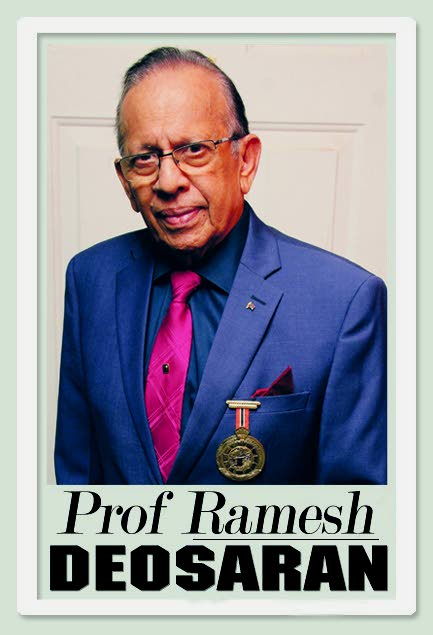Fear, rumours and covid19

As the frightening number of infections and deaths from covid19 continues to escalate, the challenges facing the government are quite pressing in terms of administration and accountability.
Notably, the consequences are physical, social and psychological.
The psychological are the uncertainties that create widespread fear and rumours. When will the epidemic end? Is the vaccine really effective? Will one shot prevent me from getting it? When exactly will sufficient vaccines be available? Can I recover if infected? Are all vaccines equally effective? Are the authorities hiding something?
Such uncertainties, locally and globally, leave space for fear and rumour.
Fear is supposed to close ranks. It seems to have the opposite effect here.
A high-blown controversy remains lingering over whether or not the virus emanated from a leak at a Wuhan laboratory. Former US President Donald Trump insisted on calling it the “China virus.”
During the last three weeks, on several Asian television stations, an unsettling debate continued over an alleged proposal made five years ago by two scientists working in a Wuhan laboratory that a virus can be made and used as a “weapon of war.” This idea is nothing new. Biological warfare is a continuing threat.
But the allegation by several scientists that a “leak” from the Wuhan lab contributed to the virus spread remains controversial. Rumour or fact?
Chinese virologist Li Meng Yan alleged on several television interviews (eg WION TV, Republic TV) that the “leak” and “weapon of war” proposal are true. The Chinese government called her allegation “far-fetched.”
Then later on WION television, Prof Giuseppe Tritto, biochemist and president of the World Academy of Bio-Medical Sciences and Technology, told interviewer Palki Sharma that he supports Dr Men Yan’s allegation and accuses China of a “cover-up.” Television interviewer Sharma said the CIA “is investigating” the allegations. The Chinese authorities have expressed denials. Last week, Chinese ambassador to this country Fang Qui expressed regrets over such allegations while pointing out the various ways in which China is helping the world in fighting covid19.
The point here is the extent to which important aspects of covid19 remain shrouded in controversy and rumours. A local example is the claim by UNC MP Dr Roodal Moonilal, citing international reports, that the Sinopharm vaccine is being used on us here as an experiment.
The government issued stern denials. Also, two UNC MPs, Dr Lackram Bodoe and Dr Rai Ragbir, disagreeing with Dr Moonilal, supported the WHO-approved Sinopharm vaccine. Former UNC MP Dr Suruj Rambachan called upon both government and the UNC to “stop the political sparring in the public interest.”
The media themselves face a dilemma. While they accommodate free speech and right to reply, there is collateral damage. Misinformation, rumour and truth remain blurred.
In his well-researched book Rumours, Jean-Noel Kapferer presents three major ways to correct or prevent rumours: firstly, the public must have total confidence in the official media (press, radio and television) so as not to be tempted to seek information elsewhere.
Secondly, the public must have total faith in its leaders, and confidence that its government is doing its best to solve problems brought on by crisis.
And thirdly, when something happens a maximum of correct information must be disseminated as quickly as possible.
In the midst of the swirling political exchanges among our politicians, questions of credibility and “who to trust” have been raised. It is not only what is said, but who says it. The loud exchanges show little or no sign of shaping “a unified front towards a common purpose.” The opposition is entitled to criticise and ask questions and the government is entitled to defend or explain.
But in the current atmosphere, couldn’t these exchanges be more temperate, leaving at least a window of opportunity for a government-opposition partnership to help mobilise the rest? The next election is four years ahead.
The US is now on a massive vaccination mission. Spain is opening up. To calm mutual animosity, UK Prime Minister Boris Johnson has opened an inquiry into how his government has been handling the pandemic.
Maybe the time has come for our government to have a multi-sectoral independent assessment of its handling so far, with recommendations within a month for improvement.
Leaving large spaces and uncertainties will encourage more fear and rumours.

Comments
"Fear, rumours and covid19"